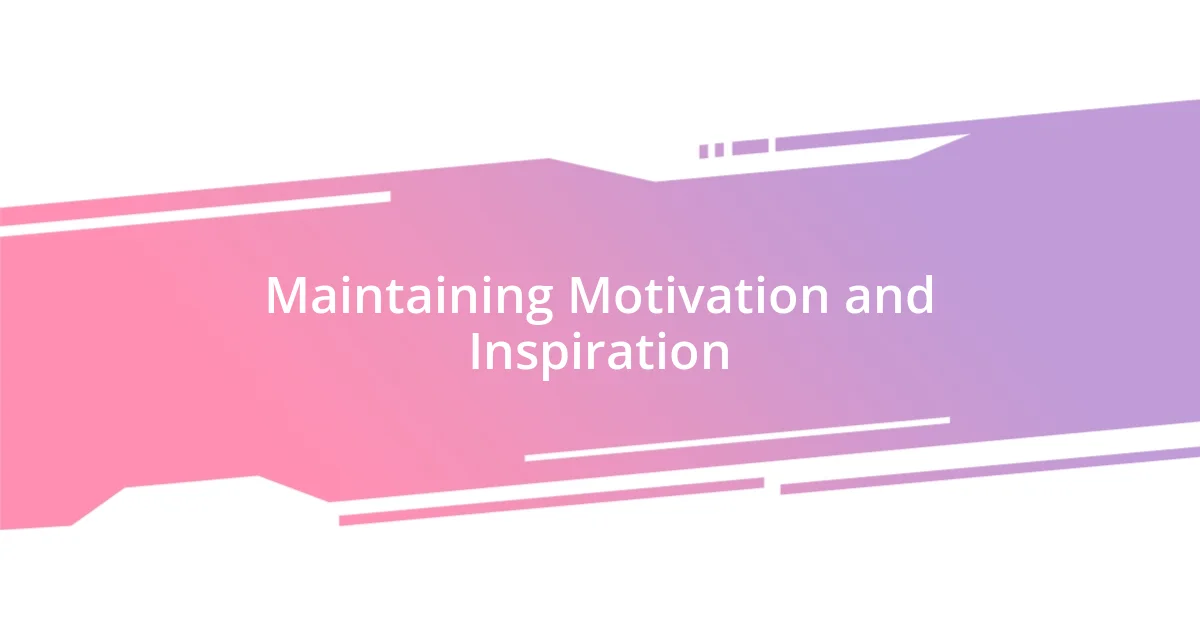Key takeaways:
- Finding balance between writing and life enhances creativity; taking breaks for social connections can spark inspiration.
- Identifying and prioritizing commitments helps manage writing goals alongside personal responsibilities, providing clarity and flexibility.
- Creating a flexible writing schedule and exploring new environments can overcome creative roadblocks and maintain motivation.

Understanding Writing and Life Balance
Finding a balance between writing and life can feel like a tightrope walk at times. I remember when I first started my writing journey, I often found myself burning the midnight oil, ignoring my social life and personal commitments. It’s exhausting, isn’t it? It’s as if I was sacrificing the very experiences that fuel my creativity.
As I navigated this path, I realized that writing shouldn’t be a solitary endeavor. I’ve found that taking breaks to connect with friends or family sparks more inspiration than I’d anticipated. Have you ever stepped away from your desk and felt a rush of ideas flowing right after a chat with a loved one? Those moments remind me that balance isn’t just about managing time – it’s about intertwining our passion with the joys of everyday life.
I once took a weekend off to go hiking, something completely outside my writing routine, and it was transformative. The clarity I gained sitting by a serene lake rejuvenated my creative energy. Isn’t it fascinating how stepping out into the world can lead us back to ourselves? Understanding that writing and life can coexist harmoniously has been a game-changer for me.

Identifying Your Priorities First
Identifying your priorities is crucial in maintaining a harmonious balance between writing and the various facets of life. I remember sitting down one afternoon with a blank notepad, attempting to tackle my daunting to-do list. I realized that if I didn’t pinpoint what truly mattered to me—like family, health, and my writing goals—I’d continue to feel overwhelmed. It’s fascinating how clarity can arise from simply defining what holds the most weight in our lives.
When I decided to focus on my priorities, I started using a simple method: ranking my commitments and goals. This practice helped me see that some writing projects, though enjoyable, weren’t as essential as spending quality time with friends or pursuing hobbies like painting. Have you ever taken a moment to reflect on what you genuinely cherish? It can be a revealing experience that reshapes your daily routine into something that nourishes both your creativity and personal life.
By regularly reassessing my priorities, I’ve learned to adapt to life’s changing circumstances. If a family gathering pops up and writing takes a backseat, I’m now more at peace with that decision. Embracing flexibility not only enhances my writing when I’m back at it but also deepens my connections with loved ones. Isn’t it empowering to know that prioritizing what you love can enrich your writing life?
| Writing Priorities | Life Priorities |
|---|---|
| Daily writing goals | Family and relationships |
| Long-term projects | Health and self-care |
| Networking and collaborations | Personal growth and hobbies |

Creating a Flexible Writing Schedule
Creating a flexible writing schedule has been a transformative experience for me. In the past, I often stuck rigidly to a schedule that left little room for spontaneity or life’s unexpected moments. I quickly learned that allowing myself the freedom to adjust my writing times leads to richer sessions and better quality work. I remember one time when a last-minute family barbecue interfered with my planned writing session. Instead of feeling frustrated, I embraced the opportunity, immersing myself in laughter and connection. Surprisingly, the next day, my creativity surged, and my words flowed effortlessly onto the page.
To build a flexible writing schedule, consider the following tips:
- Set core writing times but allow for adjustments based on life’s demands.
- Use a planner or digital tools to keep track of your writing goals and commitments.
- Incorporate buffer times to account for interruptions or spontaneous events.
- Stay open to inspiration, jotting down ideas whenever they occur, whether during a morning coffee or a walk in the park.
- Reflect weekly on how your writing schedule aligns with your life, making tweaks as needed.
This approach allows for a blend of structure and spontaneity, ensuring that both my writing and life thrive in harmony.

Setting Clear Writing Goals
Setting clear writing goals is essential for creating a productive routine. When I first started formalizing my goals, I felt a rush of determination. I remember writing down a specific target: to complete a short story within a month. The clarity that came from that simple statement helped me focus my efforts. Have you ever set a goal that made your writing feel more purposeful? It can be a magical moment when you realize that direction actually fuels creativity.
Breaking down larger goals into smaller, manageable tasks has been a game changer for me. Instead of feeling overwhelmed by the prospect of writing a novel, I decided to focus on writing just one scene a day. Taking that approach transformed my writing practice. It also made the process enjoyable, allowing me to relish each small victory. Have you tried this method? It’s incredible how celebrating each tiny accomplishment can invigorate your motivation.
I’ve also learned the importance of revisiting and adjusting my goals regularly. There have been instances where I overcommitted or my personal life took unexpected turns, like caring for a friend in need. Reflecting on those moments helped me realign my goals with my current realities. Have you ever felt the weight of your goals pulling you down instead of lifting you up? Adapting my priorities turned that weight into a motivator, allowing me to write with renewed passion when I had the time.

Implementing Effective Time Management
Implementing effective time management is crucial for balancing writing with the demands of everyday life. One strategy I adopted was creating time blocks for writing, which can feel daunting at first. I remember scheduling two hours every morning, only to realize that trying to write while my toddler was awake resulted in more distraction than flow. I quickly learned to shift those blocks to the evening, allowing for uninterrupted focus while also embracing the chaos of parenting during the day. Have you ever had to pivot your plans unexpectedly? Flexibility can turn frustration into triumph.
Another key element is setting realistic deadlines that account for life’s unpredictable nature. I once set a hard deadline to finish a manuscript before a big family trip, and the stress ate away at my creativity. The pressure of that looming date clouded my thoughts, and I started avoiding my writing altogether. I learned that it’s okay to push deadlines if it means nurturing my creative spirit. How have tight deadlines influenced your work? A little grace with our timelines can lead to richer, more fulfilling writing experiences.
Lastly, embracing the power of prioritization has been transformative. There have been weeks when writing seemed to slip down my priority list, especially during busy work deadlines or family commitments. Deep down, I knew that if I didn’t make writing a priority, I would feel a void. So, I started scheduling ‘writing dates’ with myself, treating them as importantly as any meeting or appointment. Have you ever blocked out time just for your creative pursuits? By putting it on the calendar, I finally made space for my passion in a way that honored both my life and my writing.

Overcoming Common Writing Challenges
It’s common to hit roadblocks during the writing process, and I can relate to that struggle. I remember getting stuck on a chapter, staring at a blank page for what felt like hours. Frustration mounted, but I found that stepping away for a brisk walk helped clear my head. I’d return refreshed, often with new ideas bubbling to the surface. Have you ever noticed how a simple change of scenery can unlock creativity? Sometimes, a little movement can work wonders.
Another challenge I often face is dealing with self-doubt. I’ve had mornings where I’d reread my work and wonder if I was cut out for writing at all. It’s in those moments that I remind myself of past successes—even the smallest achievements count. Whether it’s a compliment from a friend or finishing a piece I was proud of, I make a mental note to celebrate those victories. Have you ever doubted your abilities? Gathering those positive affirmations can help quiet the inner critic, allowing your voice to shine through.
Finding inspiration when things get monotonous can be incredibly challenging. There was a time when I turned to reading as a remedy for my creative slump, diving into genres I hadn’t explored before. The fresh perspectives ignited my imagination and pushed me to experiment with my writing style. When was the last time you sought inspiration outside your usual interests? Whether it’s a thrilling novel or a thought-provoking podcast, new influences can serve as a catalyst for innovative ideas.

Maintaining Motivation and Inspiration
Sometimes, motivation can feel elusive, like trying to catch smoke with your bare hands. I recall a period when I was dealing with life’s challenges while staring at an empty page, waiting for inspiration to strike. During that time, I started a gratitude journal, jotting down even the smallest victories of my day. It was amazing how reflecting on what I appreciated shifted not just my mood but also my mindset toward writing. Have you ever taken a moment to appreciate the little things? It’s a powerful reminder that inspiration often lurks in the mundane.
I’ve found that surrounding myself with a supportive community keeps the fire of motivation burning bright. Joining a local writing group turned out to be a game changer for me. Engaging with fellow writers not only offered valuable feedback but also provided a network of encouragement that made the tough days easier to bear. When we share our struggles and victories, it creates a sense of camaraderie. Have you thought about connecting with other writers? That shared experience can spark new ideas and rejuvenate your passion.
Lastly, I’ve learned that mixing up my writing routine can lead to unexpected bursts of inspiration. One rainy afternoon, I packed my laptop and ventured to a cozy café, hoping to change my scenery. As I sipped my coffee, the ambient noise and chatter around me created a unique atmosphere that fueled my creativity. It was a reminder that sometimes all it takes is a little change to ignite fresh ideas. Have you ever explored new environments for your writing? Stepping outside your comfort zone can open doors to inspiration you never anticipated.














